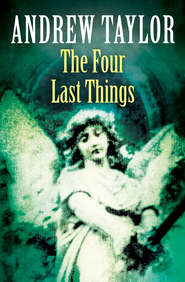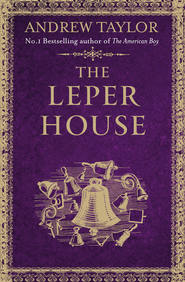По всем вопросам обращайтесь на: info@litportal.ru
(©) 2003-2024.
✖
The Silent Boy
Автор
Год написания книги
2018
Настройки чтения
Размер шрифта
Высота строк
Поля
‘I have an appetite,’ she said that night as she sat astride him, her belly already swollen with Lizzie. ‘And you shall feed me.’
The excitement drained away from him, leaving a residue of bitterness, of regret, that mingled with the dreary ache of his tooth. The drops were making his head swim and they had given him a pain in his stomach. His eyes were full of sand. He felt nauseous but lacked the strength to roll out of bed and find the chamber pot.
At times like this, in these long, sleepless nights, Savill wondered whether he, too, had been to blame for what had happened. But that was folly. Memories are not real, he told himself, they are little more than waking dreams; and there is no guilt in dreams, neither hers nor mine, and no betrayals, either.
For are we not innocent when we dream?
The next morning, the servant brought up the letter when Savill was at breakfast with his sister and Lizzie. He noticed it had been franked by an obliging Member of Parliament in lieu of postage. He broke the heavy seal. As soon as he unfolded the letter he recognized the handwriting as that of a man who no doubt included many Members of Parliament among his intimate acquaintance.
The women were watching him. He read the letter twice. The questions crowded into his mind but he had long ago schooled his face not to betray his feelings.
Savill looked up. ‘I shall not dine with you today after all. I am obliged to go out of town on business.’ He registered the disappointment spreading over Lizzie’s face, then watched her instantly suppressing it. ‘Tomorrow,’ he said. ‘There’s always tomorrow.’
Why now? he wondered. Why a summons to Vardells, not Westminster? And again, and above all, why should Rampton want to see me now?
‘She is dead.’
Twelve feet above Savill’s head, plaster putti writhed, a pair of them in each corner of the salon. Each set of twins were shackled together with garlands. The infant boys had short, stubby limbs and plump, inflated bodies. Their eyes were sightless blanks, their lips slightly parted.
Give it time, Savill thought. He imagined the gilt and the whitewash fading and cracking, staining with candle grease, and the plaster crumbling and flaking from the ceiling: plaster snow.
‘Did you hear me, sir?’ Mr Rampton said.
The grandfather clock chimed. Savill counted the quarters and then the stroke of the hour: five.
‘Dead,’ Mr Rampton repeated, this time more loudly. ‘Augusta is dead.’
Savill’s eyes dropped slowly to the marble chimney piece. On one side of the fireplace was a bronze man with bulging muscles restraining a rearing horse with one arm while waving to something or someone with the other. What in heaven’s name was it all for?
Mr Rampton coughed. ‘Augusta. My niece, sir.’
Savill looked at him. ‘My wife, sir.’
Silence settled like dust in the air. Savill looked across the room at Rampton, who was sitting in the big wing armchair on the left of the fireplace. The chair was angled to catch the light from the two tall windows. Beside the chair was a lectern on wheels with candles on either side of the slope and a sturdy quarto, the pages held open with clips.
Rampton scratched the fingertips of his left hand on the arm of the chair. His face was wrinkled but still ruddy with the impression of good health. He looked smaller than he had been. Perhaps age was shrinking him as his fortune increased. The Lord giveth, as Savill’s father used to say with a certain grim satisfaction, and the Lord taketh away.
‘Of course,’ Rampton was saying, ‘your unhappy wife, Mr Savill, despite everything. And it is a cause for sorrow that the unfortunate woman is dead at last. We must not judge her. We may safely leave that to a higher power.’
Rampton was not a big man but he made good use of what he had. He wore a sober grey coat and very fine linen. His hair was his own but he still wore it powdered, a political statement in these changing times: a public demonstration of his attachment to old virtues and old loyalties. The heels of his shoes were higher than was usual for gentlemen’s shoes. He looked every inch a statesman, albeit a smallish one, which was a pretty fair description of what he was.
‘The poor woman,’ he went on. ‘Alas, she paid the price for flouting the laws of God and man.’
The rectangle of sky outside the nearer window was cloudless, a deep rich blue. Against this backdrop danced black specks, sweeping, diving and climbing with extraordinary rapidity. The swallows and the martins had begun their evening exercise. They would be vanishing soon as they did every year, though where they went, no man knew.
‘Those confounded swallows,’ Rampton said. ‘You cannot begin to comprehend the mess they make on the terrace.’ He too was staring out of the window; he too was glad of an excuse to think of something other than Augusta. ‘They nest under the eaves of the house or in the stables – I’ve tried for three years to get rid of them. But wherever they nest, they use my terrace as their privy.’
‘Where?’ Savill said.
‘What?’ Rampton turned from the window, away from the swallows, from one annoyance to another. ‘Paris. The foolish, foolish girl.’
‘How did you hear, sir?’
‘Through the Embassy. It happened just over a week ago.’
‘When the mob stormed the Tuileries?’
‘Yes. By all accounts the whole of Paris was delivered up to them. Riot, carnage, chaos. It beggars comprehension, sir, that such a civilized city should sink so low. The poor King and his family are prisoners. Tell me, when did you last hear from her?’
‘Five years ago,’ Savill said. ‘A little more. She wrote for money.’
‘And you sent it?’
‘Yes.’
Rampton grunted. ‘There was no necessity for you to do that.’
‘Perhaps not. But I did.’
‘On the other hand,’ Rampton said, ‘perhaps it was for the best. If you hadn’t, she might have been obliged to return to England.’
‘You mean she might still be alive?’
‘Would that really have been better? For her or for anyone else? For Elizabeth? After all, you could not have taken her in, even if you desired to, and she could not have been received anywhere.’
Rampton had lost all his teeth. As a result his voice had changed. Once it had been precise and hard edged, with every consonant squared off like a block of ashlar. Now the words emerged in a soft slurry of sound. No doubt he had a set of teeth, but he had not troubled to put them in for Savill.
Savill said, ‘She was in Geneva when she last wrote. She had parted from von Streicher, though she kept his name for appearance’s sake.’ The words still hurt when he said them aloud, but only his pride. ‘She said she had set up house with an Irish lady and they planned to take in pupils.’
‘Pupils? You did not believe her?’
‘I didn’t know what to believe. In any case, it didn’t signify. All that mattered was that she was in Geneva and she needed money.’
‘If she did not apply to you again, that suggests that she found it elsewhere.’
‘What were the circumstances of her death?’ Savill asked, his voice harsher than before. ‘Had she been in Paris for long? Who was she with?’
‘She had been there for several years. I believe she had granted her favours to a number of gentlemen since von Streicher’s departure. But I have not been able to ascertain whether she was under anyone’s protection at the time of her death. I’m afraid she was killed during the riots. I understand that a band of sans-culottes attacked her in the house where she had taken refuge.’
‘Was she alone?’
‘I believe so.’ Rampton took his spectacles from the lectern and turned them slowly in his hands. ‘Despite the German name she bore, you see, she was known to be British. It was said that she was a spy and she had been forced to leave her former lodgings for fear the mob would find her, or the police.’
‘Was she?’
‘A spy?’ Rampton shrugged. ‘Not as far as I know. Does it matter now?’
The frame of the glasses snapped between the lenses. Rampton stared at the wreckage in his hands. For a moment neither man spoke.











